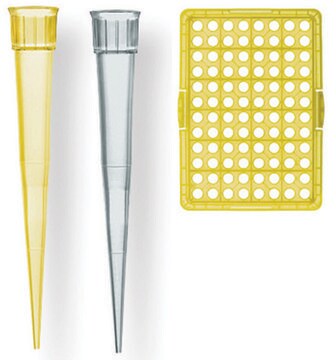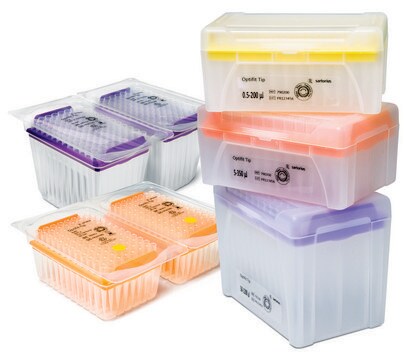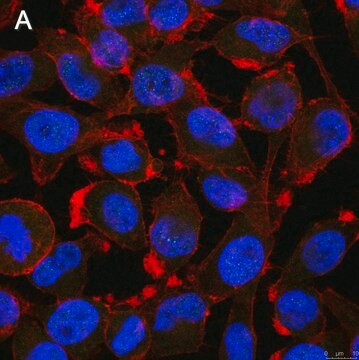EHU098591
MISSION® esiRNA
targeting human LRRK2
About This Item
Prodotti consigliati
Descrizione
Powered by Eupheria Biotech
Livello qualitativo
Nome Commerciale
MISSION®
Stato
lyophilized powder
Sequenza bersaglio del cDNA di esiRNA
CTCACGAGCTTTCCACAACAGCTATGTGAAACTCTGAAGAGTTTGACACATTTGGACTTGCACAGTAATAAATTTACATCATTTCCTTCTTATTTGTTGAAAATGAGTTGTATTGCTAATCTTGATGTCTCTCGAAATGACATTGGACCCTCAGTGGTTTTAGATCCTACAGTGAAATGTCCAACTCTGAAACAGTTTAACCTGTCATATAACCAGCTGTCTTTTGTACCTGAGAACCTCACTGATGTGGTAGAGAAACTGGAGCAGCTCATTTTAGAAGGAAATAAAATATCAGGGATATGCTCCCCCTTGAGACTG
N° accesso Ensembl | uomo
N° accesso NCBI
Condizioni di spedizione
ambient
Temperatura di conservazione
−20°C
Informazioni sul gene
human ... LRRK2(120892) , LRRK2(120892)
Descrizione generale
For additional details as well as to view all available esiRNA options, please visit SigmaAldrich.com/esiRNA.
Note legali
Codice della classe di stoccaggio
10 - Combustible liquids
Punto d’infiammabilità (°F)
Not applicable
Punto d’infiammabilità (°C)
Not applicable
Scegli una delle versioni più recenti:
Certificati d'analisi (COA)
Non trovi la versione di tuo interesse?
Se hai bisogno di una versione specifica, puoi cercare il certificato tramite il numero di lotto.
Possiedi già questo prodotto?
I documenti relativi ai prodotti acquistati recentemente sono disponibili nell’Archivio dei documenti.
Il team dei nostri ricercatori vanta grande esperienza in tutte le aree della ricerca quali Life Science, scienza dei materiali, sintesi chimica, cromatografia, discipline analitiche, ecc..
Contatta l'Assistenza Tecnica.







